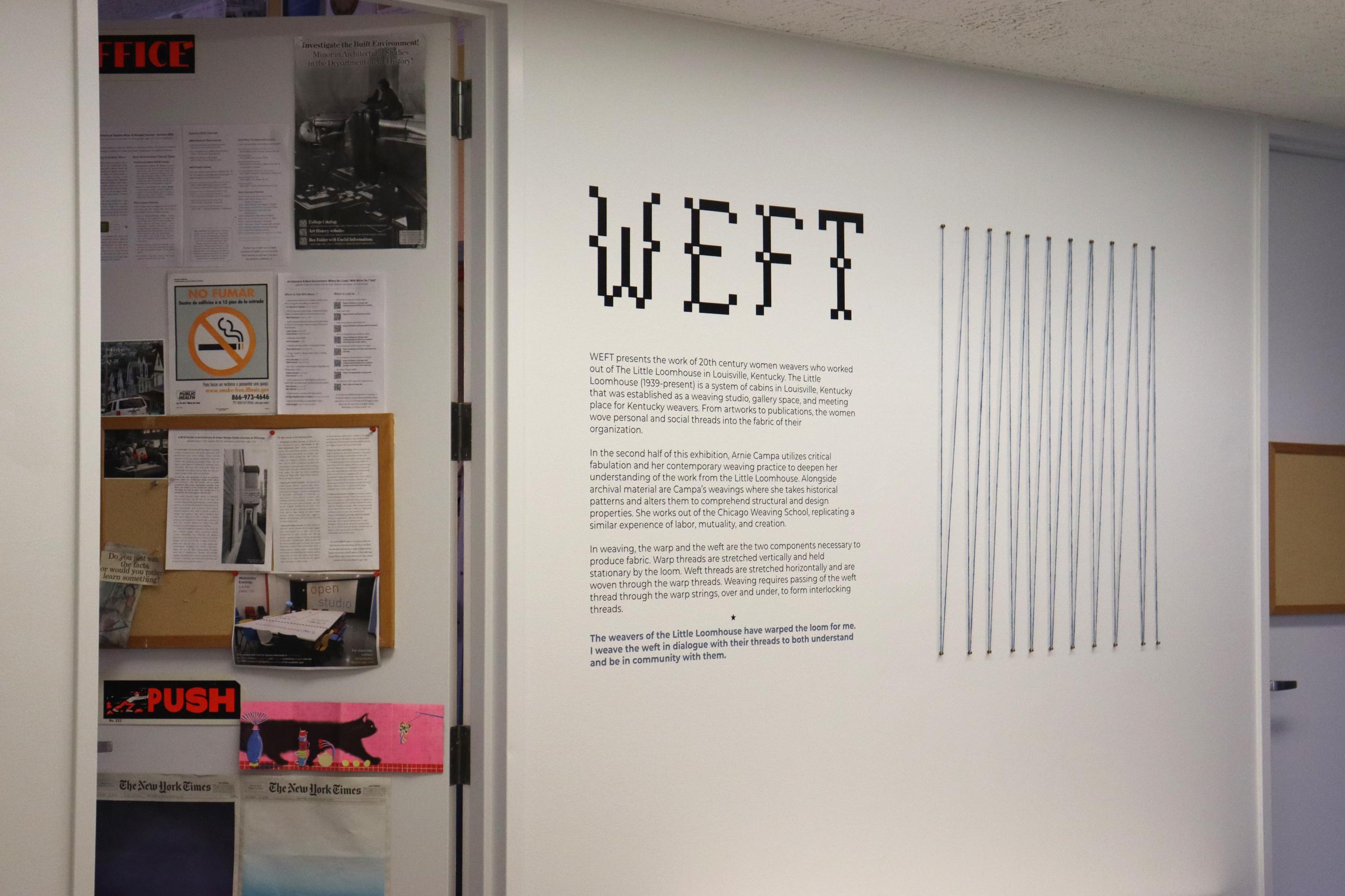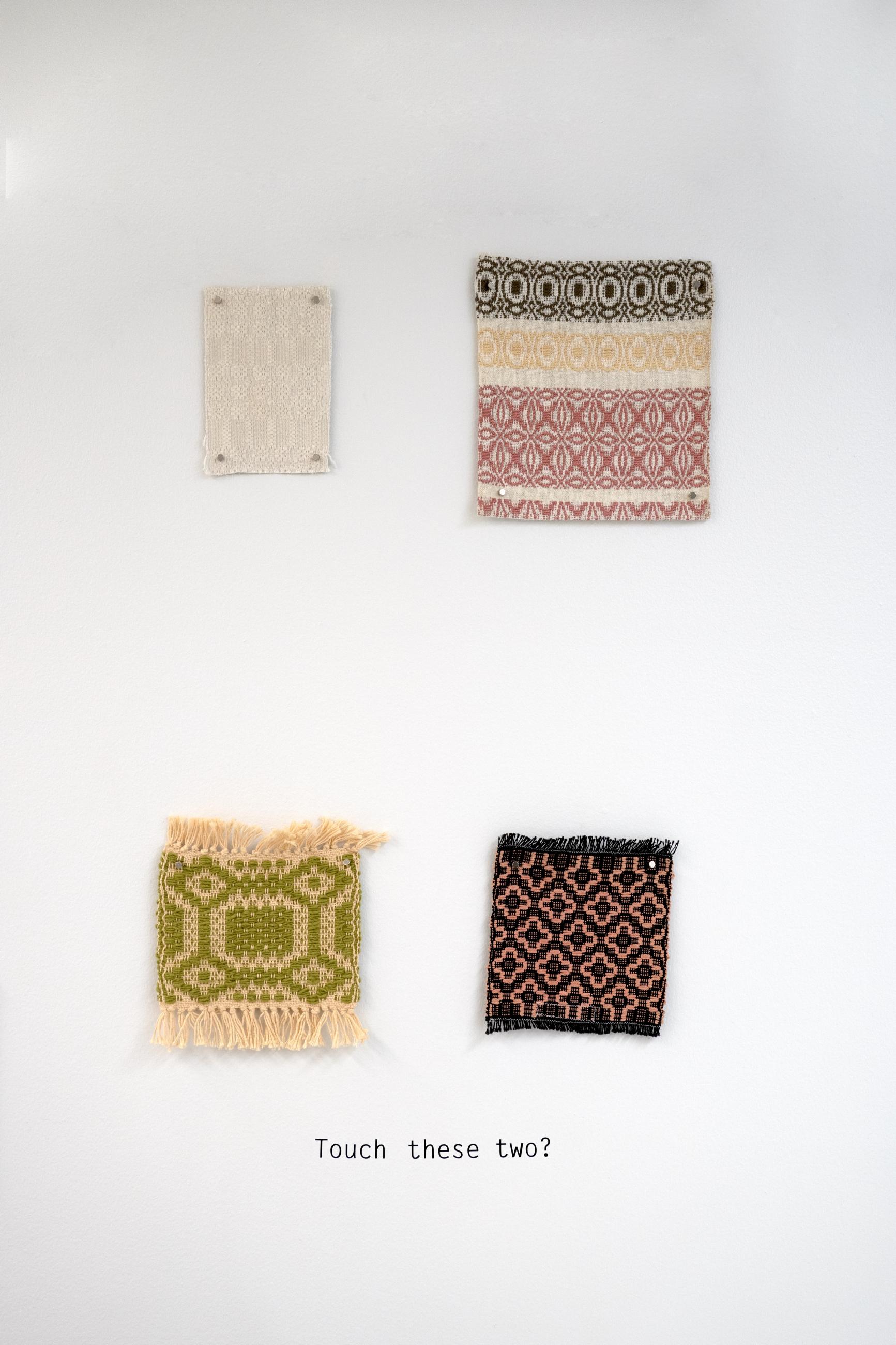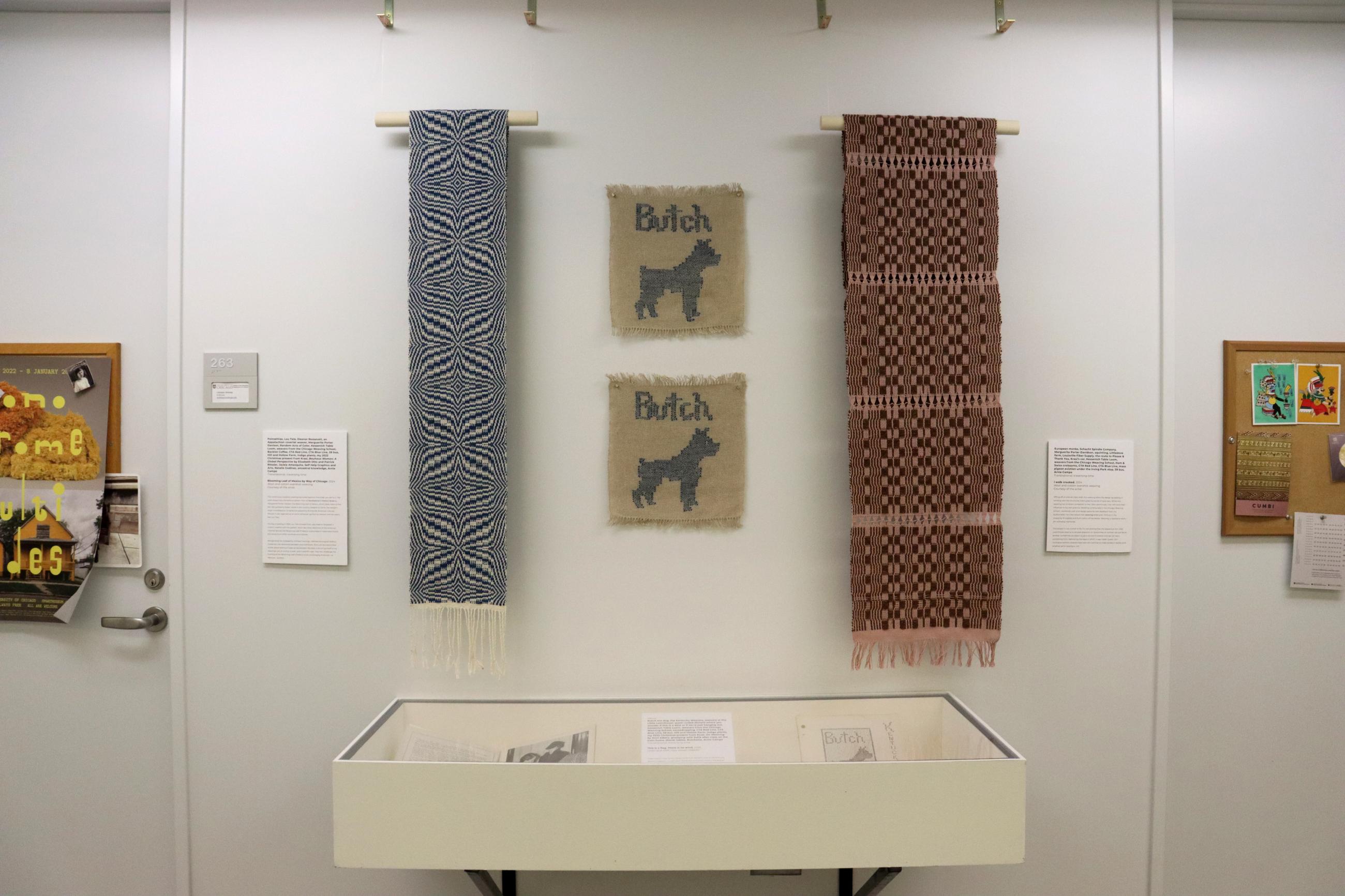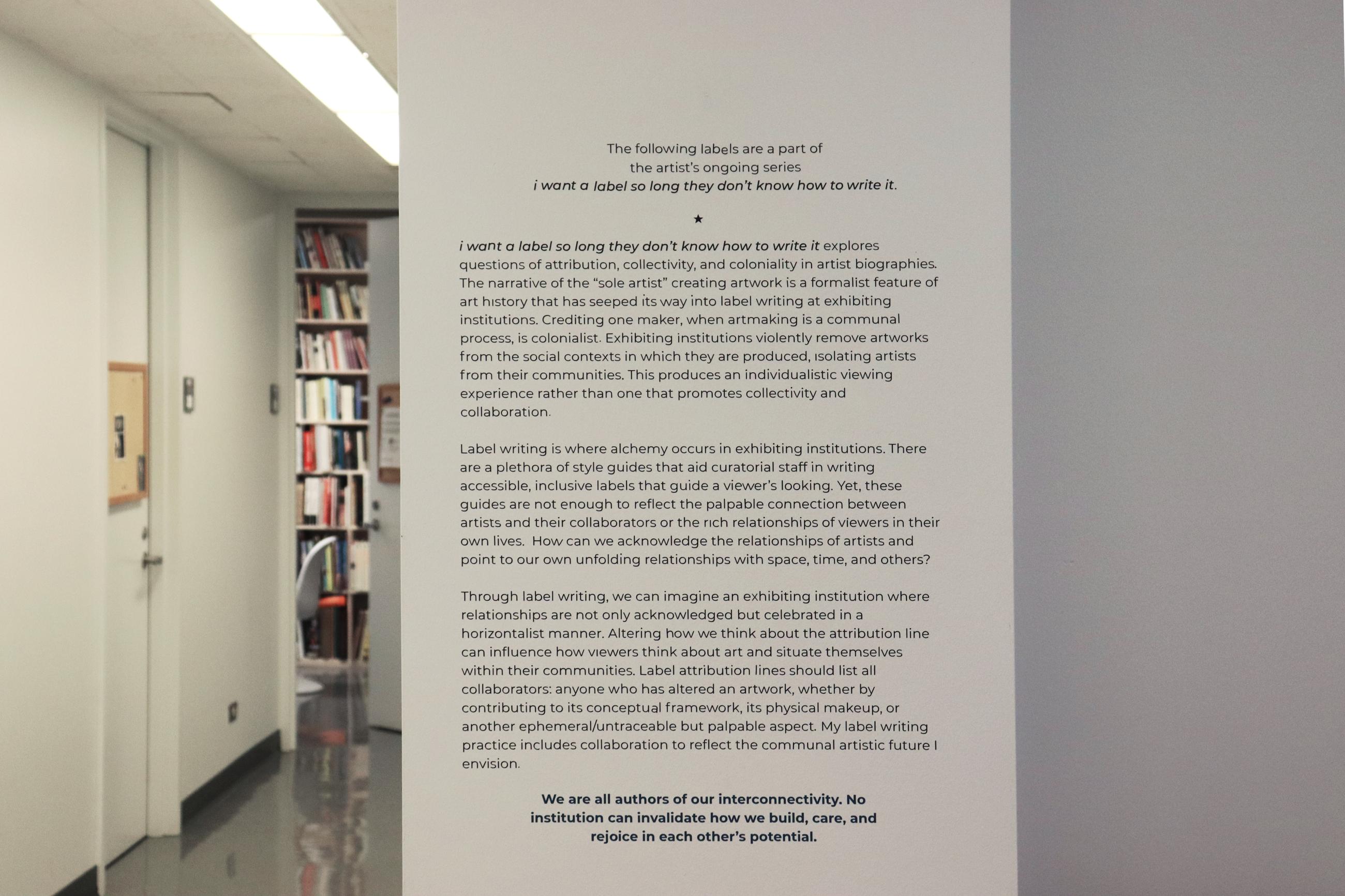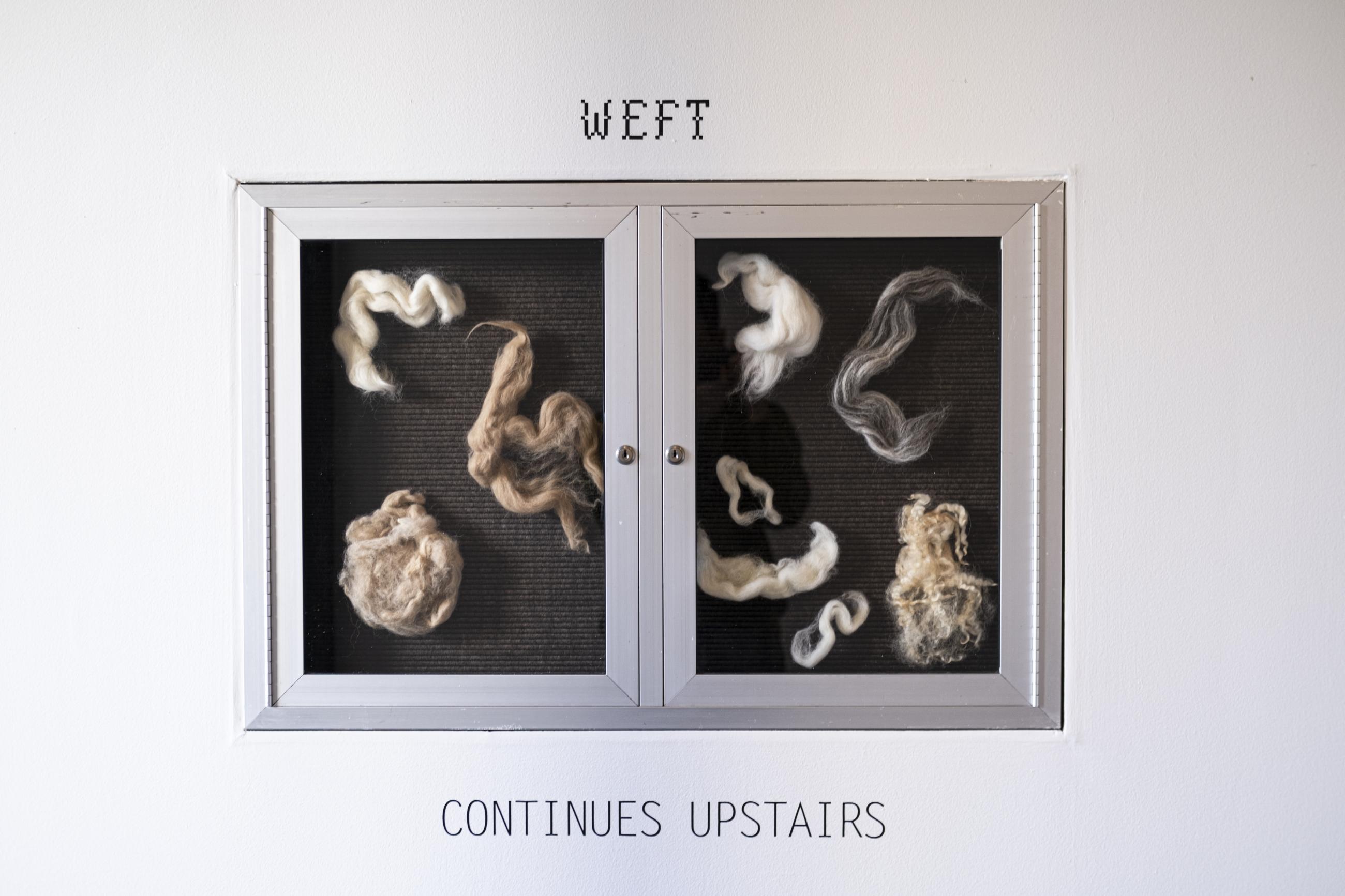WEFT presents the work of 20th century women weavers who worked out of The Little Loomhouse in Louisville, Kentucky. The Little Loomhouse (1939-present) is a system of cabins in Louisville, Kentucky that was established as a weaving studio, gallery space, and meeting place for Kentucky weavers. From artworks to publications, the women wove personal and social threads into the fabric of their organization.
In the second half of this exhibition, Arnie Campa utilizes critical fabulation and her contemporary weaving practice to deepen her understanding of the work from the Little Loomhouse. Alongside archival material are Campa’s weavings where she takes historical patterns and alters them to comprehend structural and design properties. She works out of the Chicago Weaving School, replicating a similar experience of labor, mutuality, and creation.
In weaving, the warp and the weft are the two components necessary to produce fabric. Warp threads are stretched vertically and held stationary by the loom. Weft threads are stretched horizontally and are woven through the warp threads. Weaving requires passing of the weft thread through the warp strings, over and under, to form interlocking threads.
The weavers of the Little Loomhouse have warped the loom for me. I weave the weft in dialogue with their threads.
Curator
WEFT is curated by Arnie Campa, AB’25.
Artists
The Little Loomhouse (1939-present) is a system of cabins in Louisville, Kentucky that serves as a weaving studio, gallery space, and meeting place for Kentucky weavers. Louisa Tate Bousman (professionally known as Lou Tate) established the space as an art center after the death of her mother, who had purchased the cabins to serve as her retirement home. The Little Loomhouse is a historically women-run space that served as a hub for connecting Kentucky weavers whose techniques spread across the country. The Little Loomhouse also served as a space for Lou Tate's art historical research and preservation of colonial Appalachian coverlets.
In the late 1930s, Lou Tate developed the Lou Tate Table Loom (known as the Little Loom) along with Dr. S. W. Mather, a dentist in Louisville. By 1938, this two-heddle teaching loom was sold and distributed for educational and personal use. Alongside the distribution of the Little Loom, innovative teaching didactics were developed by the Little Loomhouse. These didactics expanded engagement with the historical craft lineage of Kentucky folk art as they encouraged new weavers to use colonial drafts. Soon after, Lou Tate gathered a group of women to establish the experimental Kentucky Weavers Guild, which published a quarterly magazine by the same name. Unfortunately, the Guild was short-lived, due in large part to Lou Tate’s illness and lack of resources. Despite this, Lou Tate continued to run the Little Loomhouse until her death in 1976.
Today, the Little Loomhouse stands as one of the last historic weaving centers in Kentucky. They foster a robust community through their artistic and educational workshop programs that teach spinning, dyeing, and weaving. Their collaboration with other educational institutions, like Berea College, continues to further the artistic legacy of Lou Tate and her efforts to reinvigorate Kentucky’s rich weaving tradition.
Arnie Campa (she/her) is a weaver studying at the University of Chicago, where she majors in Art History and Inquiry and Research in the Humanities. Arnie’s art historical interests concern queer and indigenous craft practices as well as communality and mutuality in artmaking. Her thesis explores the creation of an American aesthetic through the Weaving is Fun program at the Little Loomhouse in Louisville, Kentucky. Her work is shaped by the artistic communities that have uplifted her, from East Los Angeles to Chicago.
Additional Resources
Critical fabulation and queer archival methodologies are essential to the work of Arnie Campa and many other practitioners. She has curated meet me at the loom, a list of readings, artworks, and songs on the subject for you to explore more.
View the full archive of installation images on LUNA.
Accessibility
CWAC Exhibitions is committed to accessibility for all our exhibitions. However, the second floor of the Cochrane-Woods Art Center is accessible only by stairs. To request an accommodation or alternative format, please email visualresources@uchicago.edu.
Support
This exhibition is generously supported by the Department of Art History, University of Chicago. Installation support and preparation provided by Owen Hoffer, Arnie Campa, Casey Breen, Luke Joyner, and University of Chicago Facilities Services. Special thank you to Michelle K. Amos, The Lou Tate Foundation, and Krasimir Staykov.
Related Programming
- Opening Celebration for WEFT, August 15, 2024 at 5:30pm


